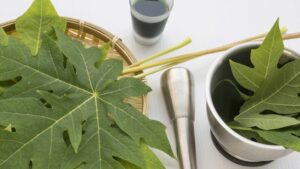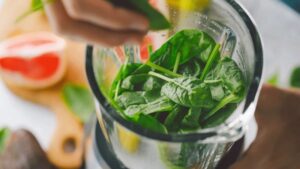Last updated on April 18th, 2025 at 01:19 pm

Dengue and Its Impact on Platelet Count
Dengue fever is a mosquito-borne viral infection that has become a major global health concern. Dengue can lead to dengue hemorrhagic fever, a severe and potentially fatal complication. One of the main characteristics of dengue infection is the significant decrease in platelet count, which can result in life-threatening bleeding. Platelets are crucial for blood clotting and preventing excessive bleeding, so maintaining a healthy platelet count is essential during dengue treatment.
To better understand the impact of dengue on platelet count, it is necessary to be aware of the normal range of platelets in the blood. A healthy platelet count ranges from 150,000 to 450,000 platelets per microliter of blood. In dengue patients, the platelet count can drop dramatically, sometimes to as low as 10,000 platelets per microliter. This can lead to dengue hemorrhagic fever (DHF) and dengue shock syndrome (DSS), which require immediate medical intervention.
The severity of dengue and its impact on platelet count vary from person to person. Some individuals may experience only mild symptoms, while others may require hospitalization and intensive care. Early diagnosis and proper treatment are essential for improving the prognosis and reducing the risk of complications. This includes timely administration of dengue treatment foods that can help boost the patient’s platelet count and support recovery.
The Importance of Proper Nutrition for Dengue Patients
Proper nutrition plays a critical role in the recovery of dengue patients. A well-balanced diet consisting of dengue treatment foods can provide the necessary nutrients and energy needed to fight the infection and support the immune system. Dengue patients often experience a loss of appetite, nausea, and vomiting, making it difficult to consume adequate amounts of food. Therefore, it is essential to focus on nutrient-dense foods that are easy to digest and can help replenish the body’s resources.
A dengue diet should be rich in vitamins, minerals, and antioxidants, which can help strengthen the immune system and support the body’s ability to repair damaged cells. Foods high in vitamin C, vitamin K, and B-complex vitamins are particularly beneficial for dengue patients, as they can help boost platelet production and promote overall health. Additionally, consuming protein-rich foods can support tissue repair and speed up recovery.
It is also crucial to avoid foods and beverages that can worsen the symptoms of dengue or hinder the body’s healing process. These include processed foods, sugary drinks, and foods high in unhealthy fats. By focusing on a balanced diet of dengue treatment foods, patients can improve their chances of a faster and smoother recovery.
Top Foods for Boosting Platelet Count in Dengue Patients
 Incorporating specific foods into a dengue diet can help boost the patient’s platelet count and support recovery. Some of the top dengue treatment foods known to increase platelet count include:
Incorporating specific foods into a dengue diet can help boost the patient’s platelet count and support recovery. Some of the top dengue treatment foods known to increase platelet count include:
- Papaya: Papaya is considered one of the best foods for dengue patients due to its ability to boost platelet count. Papaya leaves, in particular, have been shown to possess compounds that can significantly increase platelet production.
- Pomegranate: Pomegranate is rich in vitamins, minerals, and antioxidants, which can help strengthen the immune system and support platelet production. Consuming pomegranate juice or eating the seeds can provide the necessary nutrients for dengue patients.
- Spinach: Spinach is an excellent source of vitamin K, which plays a crucial role in blood clotting and platelet formation. Including spinach in the dengue diet can help boost platelet count and promote overall health.
- Kiwifruit: Kiwifruit is packed with vitamin C, which can help increase platelet count and support the immune system. Dengue patients can benefit from consuming kiwifruit regularly.
- Lean protein sources: Protein-rich foods, such as lean meats, fish, eggs, and tofu, can support tissue repair and boost the production of platelets. Including these foods in a dengue diet can help speed up recovery.
The Healing Properties of Papaya Leaves for Dengue Treatment
Papaya leaves have gained significant attention as a potential dengue treatment due to their ability to boost platelet count. The leaves contain various bioactive compounds, including papain, chymopapain, and carpaine, which have been shown to possess anti-inflammatory, antioxidant, and immunomodulatory properties. These compounds can help reduce the severity of dengue symptoms and support the body’s natural healing process.
Studies have shown that papaya leaf extract can significantly increase platelet count in dengue patients, reducing the risk of complications associated with low platelet count. Papaya leaves also contain high levels of vitamins and minerals that can support overall health and improve the patient’s immune response to the infection.
In addition to boosting platelet count, papaya leaves have been found to possess anti-viral properties that can inhibit the replication of the dengue virus. This can help reduce the severity of the infection and support the body’s ability to recover from the illness.
How to Make Papaya Leaf Juice for Dengue Platelet Count
Papaya leaf juice is a popular and effective home remedy for dengue platelet count. Preparing papaya leaf juice is simple and can be done at home using fresh papaya leaves. Follow these steps to make papaya leaf juice for dengue platelet count:
- Wash and clean 5-6 fresh papaya leaves thoroughly to remove any dirt or debris.
- Remove the thick central vein and stems from the leaves.
- Put the leaves in a blender after cutting them into small pieces.
- Add a small amount of water to the blender and blend until a smooth paste is formed.
- Strain the paste through a fine mesh strainer or cheesecloth to separate the juice from the pulp.
- Store the papaya leaf juice in a sealed container and refrigerate until ready to use.
Dengue patients can consume two tablespoons of papaya leaf juice twice a day for best results. It is essential to consult a healthcare professional before starting any home remedy or supplement, especially for dengue platelet count.
Other Foods and Drinks for Dengue Treatment and Platelet Count Boosting
In addition to the top foods mentioned earlier, several other foods and drinks can support dengue treatment and promote platelet count boosting. These include:
- Beetroot: Beetroot is rich in iron, vitamins, and antioxidants, which can help increase platelet count and support overall health. Consuming beetroot juice or adding beetroot to salads and smoothies can provide the necessary nutrients for dengue patients.
- Coconut water: Coconut water is a natural source of electrolytes, vitamins, and minerals that can help replenish the body’s resources and maintain hydration during dengue treatment. Drinking coconut water can also help alleviate symptoms such as nausea and vomiting.
- Berries: Berries, such as strawberries, blueberries, and raspberries, are packed with antioxidants and vitamins that can support the immune system and boost platelet production. Including berries in the dengue diet can help improve the patient’s overall health.
- Whole grains: Whole grains, such as brown rice, quinoa, and whole wheat bread, provide essential nutrients and fiber that can support digestion and overall health. Including whole grains in the dengue diet can help promote a faster recovery.
- Green tea: Green tea is rich in antioxidants and has been shown to possess anti-viral properties that can help fight the dengue virus. Drinking green tea during dengue treatment can provide additional health benefits and support recovery.
Foods and Drinks to Avoid During Dengue Treatment
Certain foods and drinks can worsen the symptoms of dengue or hinder the body’s healing process. Dengue patients should avoid the following:
- Processed and junk foods: Processed foods, such as chips, cookies, and fast food, can contribute to inflammation and weaken the immune system. It is essential to focus on nutrient-dense foods during dengue treatment.
- Sugary drinks: Sugary drinks, such as soda and fruit juices with added sugar, can cause blood sugar fluctuations and contribute to inflammation. Opt for water, coconut water, or herbal teas instead.
- Alcohol: Alcohol can impair the immune system and hinder the body’s ability to fight the dengue virus. Dengue patients should avoid alcohol consumption during treatment.
- Caffeine: Caffeine can cause dehydration and interfere with the absorption of essential nutrients. Limit caffeine intake during dengue treatment.
- Spicy and oily foods: Spicy and oily foods can cause digestive issues and worsen symptoms such as nausea and vomiting. Stick to mild, easy-to-digest foods during dengue treatment.
The Role of Hydration in Dengue Treatment and Platelet Count Boosting
Proper hydration is essential during dengue treatment, as it helps maintain the body’s electrolyte balance and supports overall health. Dengue patients often experience symptoms such as fever, vomiting, and diarrhea, which can lead to significant fluid loss and dehydration. Maintaining adequate fluid intake is crucial for preventing complications and promoting a faster recovery.
Water is the best source of hydration, but dengue patients can also benefit from consuming other hydrating fluids, such as coconut water, herbal teas, and fruit-infused water. These fluids can help replenish lost electrolytes and provide additional nutrients that can support platelet count boosting and overall health.
It is also important to avoid dehydration during dengue treatment. Dehydration symptoms include weariness, dry lips, and dark urine. Dengue patients should aim to drink at least eight glasses of fluid per day and increase their intake if they experience symptoms of dehydration.
Dengue Diet Plan and Sample Menu
A dengue diet plan should focus on nutrient-dense, easy-to-digest foods that can help support recovery and boost platelet count. Here is a sample menu for a dengue diet plan:
- Breakfast: Oatmeal with sliced banana and almond milk, or a spinach and mushroom omelet with whole wheat toast
- Snack: Pomegranate seeds with Greek yogurt, or a kiwifruit smoothie with almond milk and honey
- Lunch: Grilled chicken breast with roasted vegetables and quinoa, or a papaya salad with shrimp and brown rice
- Snack: Beetroot hummus with carrot sticks, or a berry and coconut water smoothie
- Dinner: Baked salmon with sweet potato and green beans, or a tofu and vegetable stir-fry with brown rice
- Snack: Papaya leaf juice, or a small handful of almonds
Conclusion
Dengue fever is a serious health condition that can have severe consequences if not properly diagnosed and treated. A critical component of dengue treatment is proper nutrition, which can help support recovery and boost platelet count. Incorporating dengue treatment foods, such as papaya leaves, pomegranate, spinach, kiwifruit, and lean protein sources, can provide the necessary nutrients and energy needed to fight the infection and support the immune system.
In addition to specific foods, it is important to avoid certain foods and drinks that can worsen symptoms or hinder the body’s healing process. Proper hydration is also crucial during dengue treatment, as it helps maintain the body’s fluid and electrolyte balance.
By following a well-balanced dengue diet plan, patients can improve their chances of a faster and smoother recovery. It is important to consult a healthcare professional before starting any new diet or supplement, especially during dengue treatment. With the power of dengue treatment foods and proper medical care, patients can overcome this challenging health condition and regain their health and vitality.
FAQs on How to Increase Platelet Count in Dengue

Visit Medkart to get the best generic medicines at the lowest prices, today!